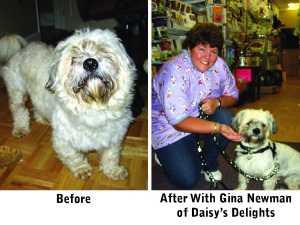 By The Tidy Cat Whisperer:
By The Tidy Cat Whisperer:
2011. It is a new year. Oh yes “whoopee”. So many people are now out celebrating the passage of time and the ritualistic saying goodbye to the year just completed and the eagerly anticipated year to be. The year we’ve just left behind-although flawed and fraught with inequities- is at least familiar territory. Some people are anxious to leave that with which they are familiar. You know, the old “change” thing. Even if we are in a bad situation, we HATE change. The new year ahead? Unknown territory, and therefore subject to much speculation-and not just where people are concerned.
The Stinky Cat and the Tidy Cat Whisperer (TCW) don’t always agree on everything: but one thing we DO see eye to eye on is the fact that, in the year just completed more pets have been turned into animal shelters and rescues than the aforementioned shelters have room for. Which means that some of these pets never find a second chance for love and a forever home. It is the sad, yet inevitable result of life in a post-economic-meltdown world.
One of the prime reasons that cats and dogs are turned into shelters is due to dreaded “inappropriate elimination”: in other words, failure to use the litterbox (cats) or poor housetraining habits (dogs). Many rescues and shelters are overwhelmed by more strays than in previous years, coupled with more animals turned in due to financial considerations than usual. Today’s new “economic reality” has been a disaster for animal rescues and shelters, not to mention most human welfare resources. That is why TCW and Stinky Cat are here: to help.
According to TCW, “often all too often litterbox issues could have been avoided if a little more thought and planning had been in place.” In other words, if you already have a cat and you are not sure how your cat would react to another cat in your home, then before you decide to bring a new cat in do some research. Ask your vet how to integrate a new cat into an environment with an existing cat. Ask friends who have multiple cats how they were able to integrate the cats. And for pete’s sake, ask all these questions BEFORE you make the decision to bring another animal into your house. And, although declawing a cat makes life convenient for people, it quite often makes life for your cat very inconvenient and in many cases can lead to inappropriate urination.
The Stinky Cat adds that “inconsistent housebreaking or lack of any sort of training at all can contribute to a dog’s poor housetraining habits. A dog without proper housebreaking is not the fault of the dog; it is the fault of the people who did not spend the time to train.” Typical life situation: Cute puppy, family loves the puppy, brings the puppy home. All is right with the world. Then reality sets in. Mom & dad work 8 hours a day, kids are in school, no one has time to house train the dog. Yet, the dog is the one who pays the price by being turned into the local shelter, where an uncertain future awaits. Note to dog owners: no matter how old the dog is, it is never too late to house train a dog. It CAN be done-and often is very successfully.
Unfortunately people all too often choose the “easy” way out, either by medication (Xanax, Buspar) or by simply deciding that they can no longer “deal with the situation” and the only alternative is to rehome the pet. This blogpost is a plea to ALL pet owners to please consider every option before making the decision to rehome your pet.
Many vets, rescue groups, dog trainers and shelters will spend time working with you and your pet to try and help resolve the issues that might prevent you and your pet from enjoying your “furrever time” together. In a world that has morphed into moment-to-moment, day-by-day, we remind you that one way to ensure the stability of your own household is to make sure the needs of all the members of your household-including your pets- are properly attended to.














